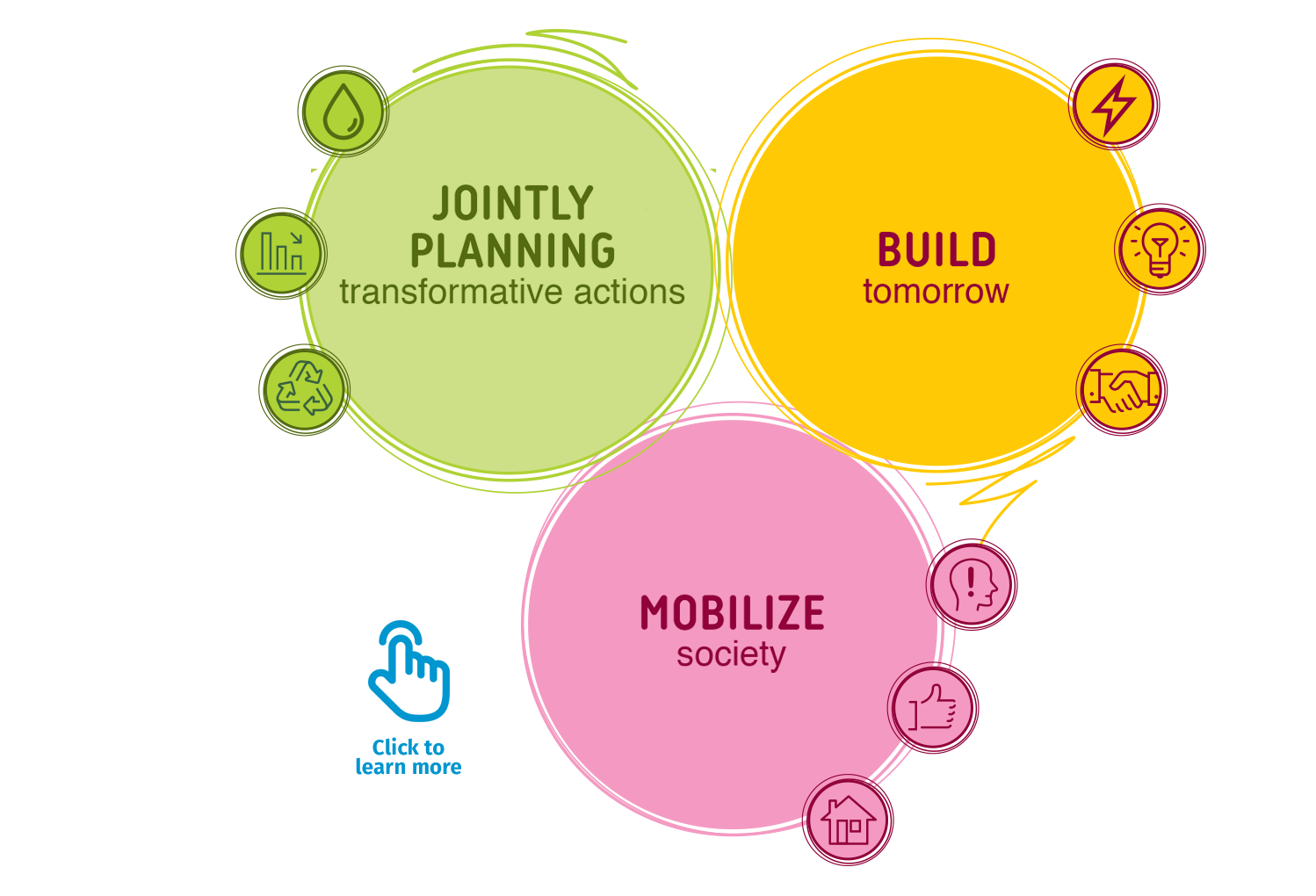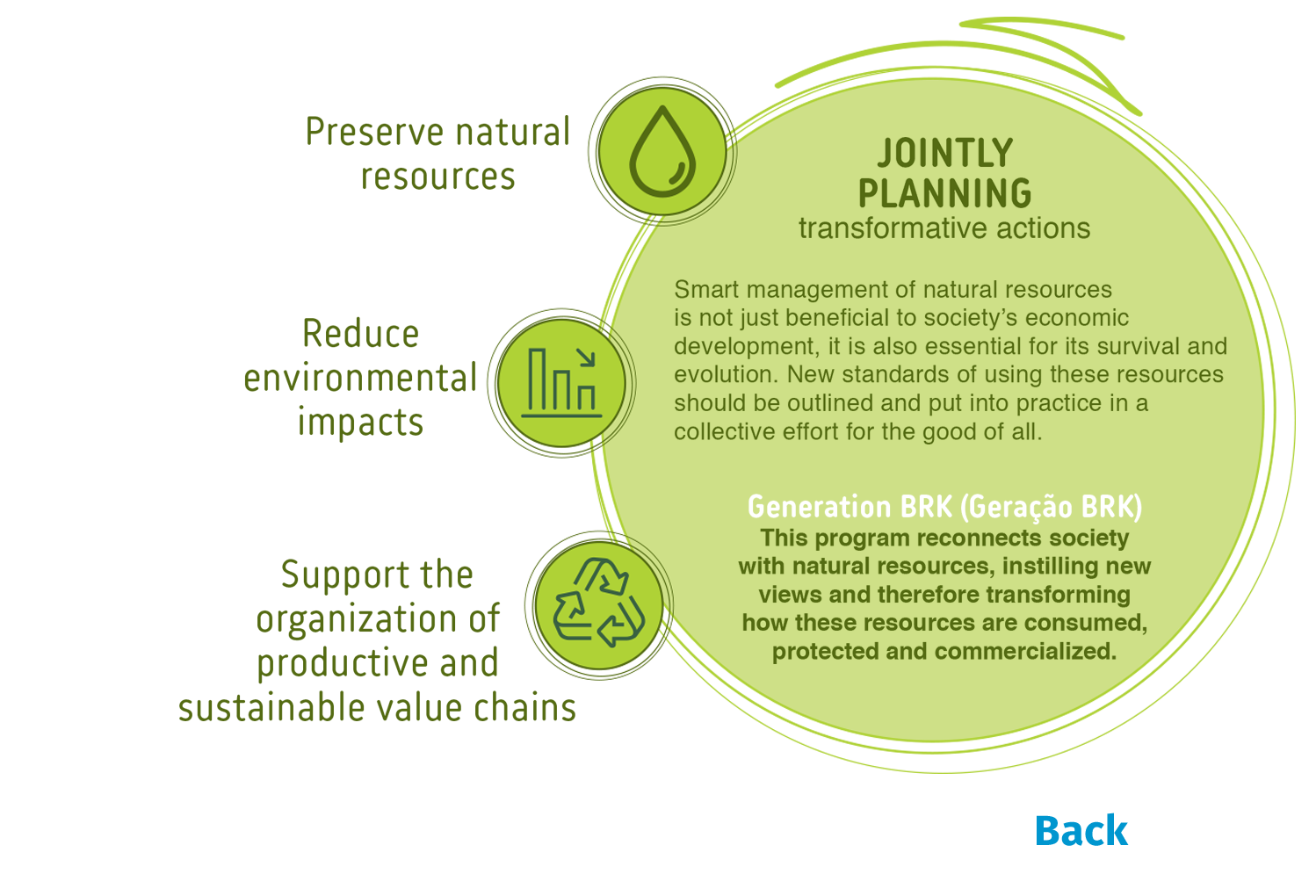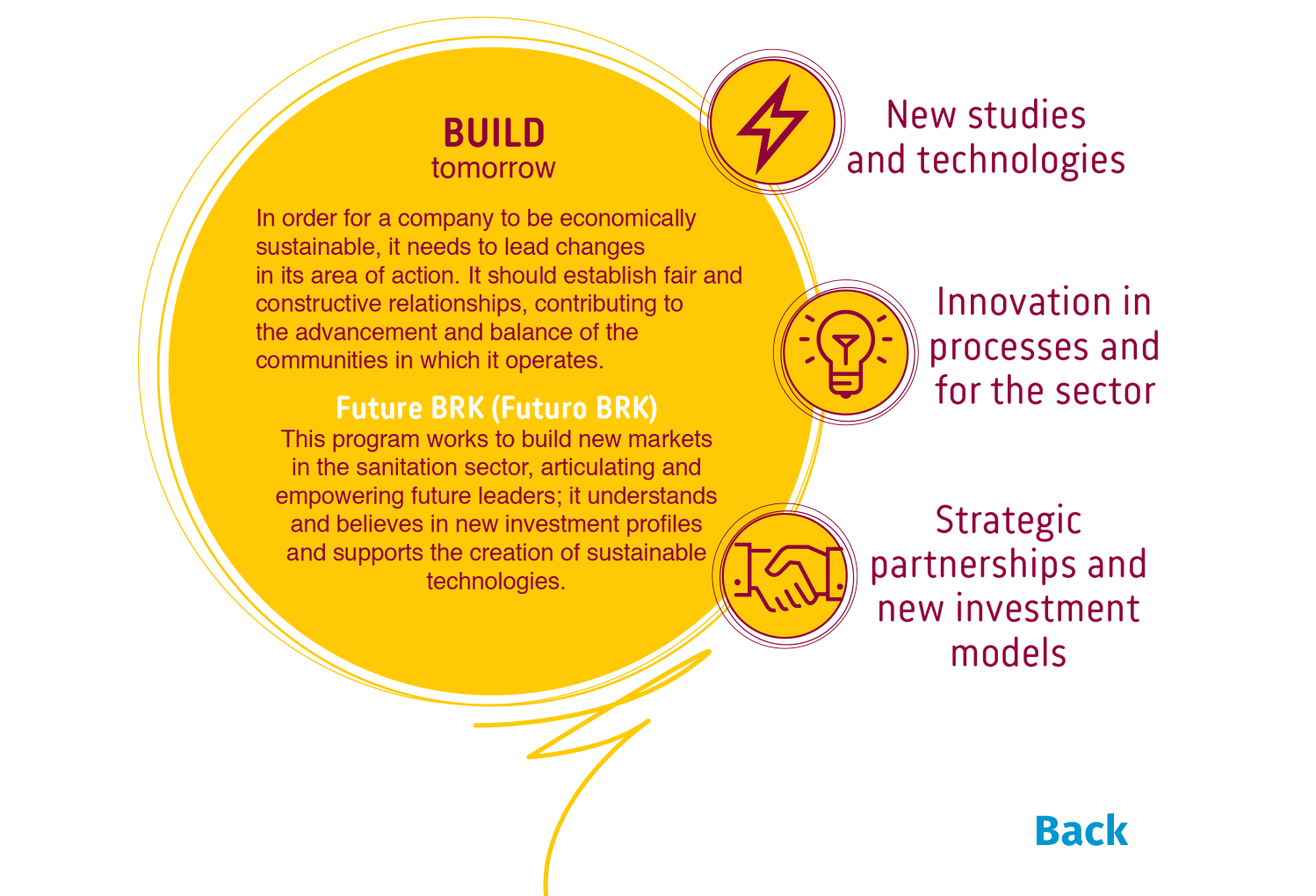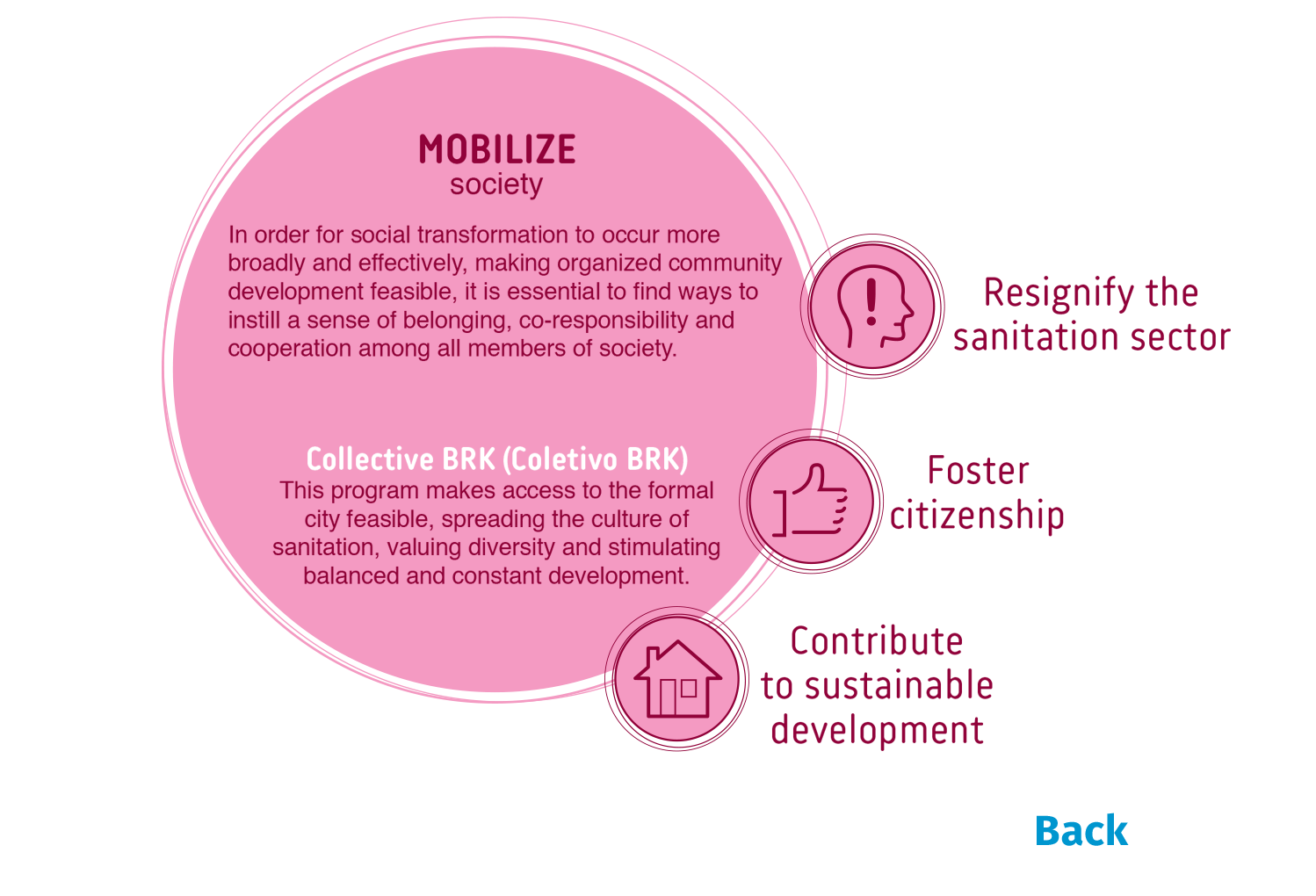Dialog on health and development

“Bringing water and sewerage
to Brazilians everywhere is one of the
biggest demands in Brazil in the
21st century and can no longer be postponed”
Teresa Vernaglia
Our purpose is to
transform people's lives,
guaranteeing
quality water
and sanitation
We are the largest private sanitation company in Brazil
+ 5,800
EMPLOYEES
+ 100
CITIES SERVED
12
STATES IN BRAZIL
+ 890,000
WATER CONNECTIONS
+ 1.4 million
SEWER CONNECTIONS
+ 13,600
KILOMETERS OF WASTEWATER COLLECTION SYSTEMS
By 2023, we will invest
BRL 7 billion
in our business
to expand
basic sanitation
 Click here to learn more about our business model and operations
Click here to learn more about our business model and operations
Why is
basic sanitation
so important
to people's lives?
Why is basic sanitation
so important
to people's lives?
1
+ PUBLIC HEALTH AND LOWER INFANT MORTALITY
1+ PUBLIC HEALTH AND LOWER INFANT MORTALITY

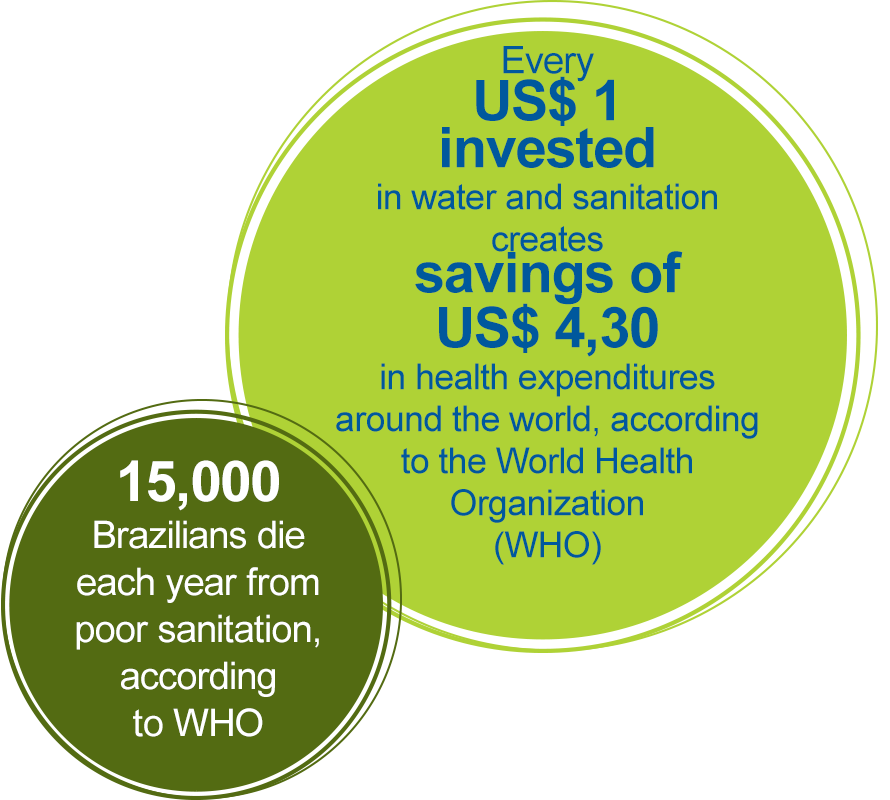
2
+ PRODUCTIVITY AND EDUCATION
2 + PRODUCTIVITY AND EDUCATION

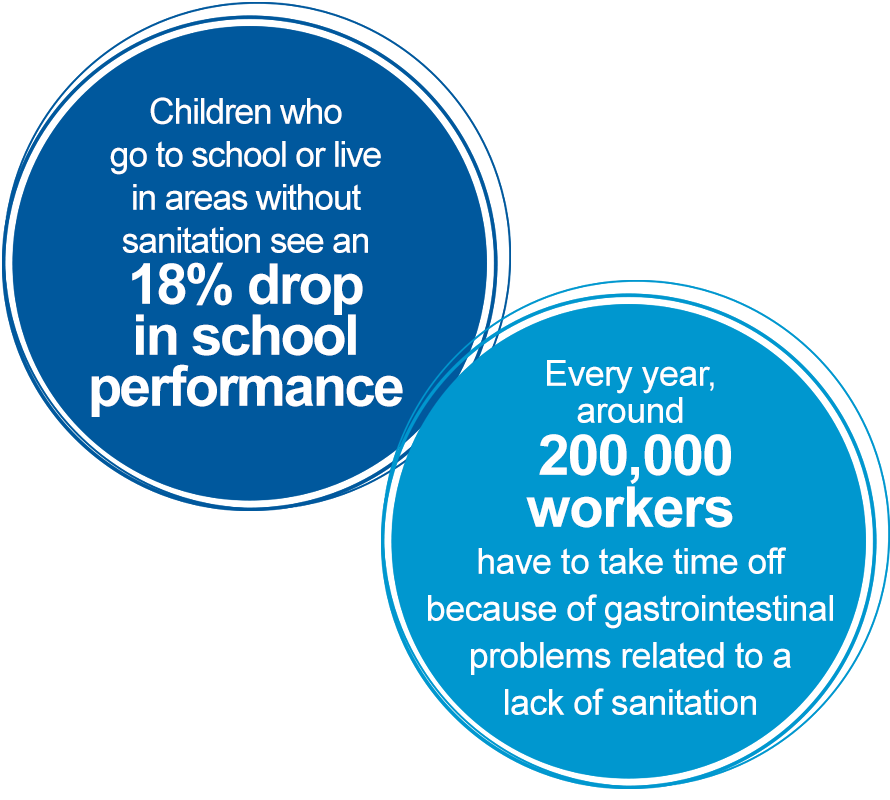
3
+ ECONOMIC
GROWTH
3+ ECONOMIC GROWTH

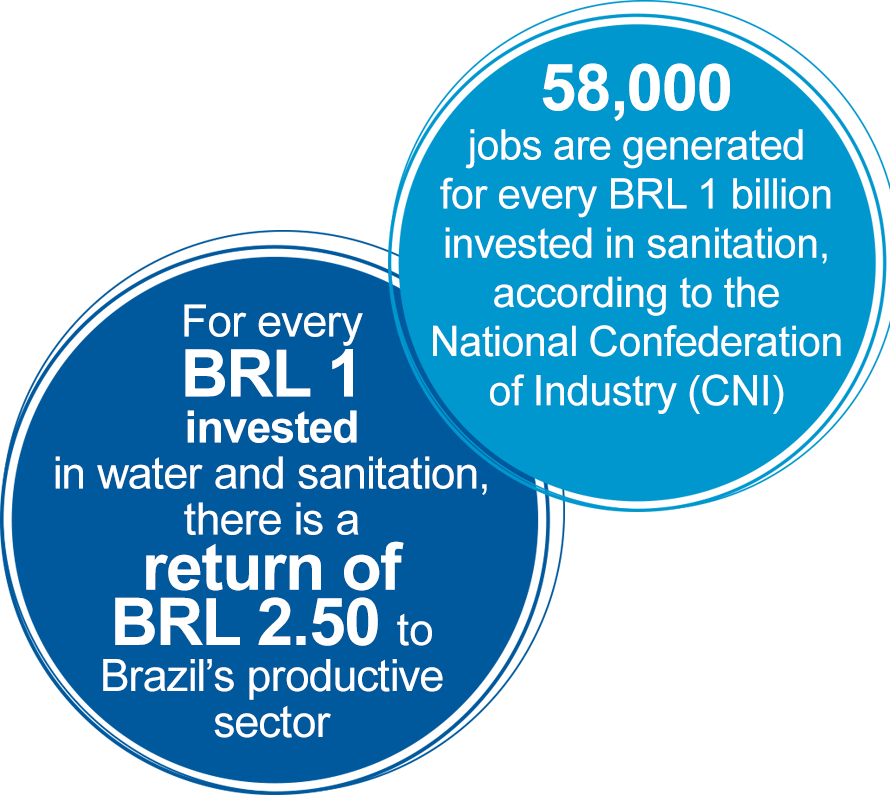
4
+ GENDER
EQUALITY
4 + GENDER EQUALITY

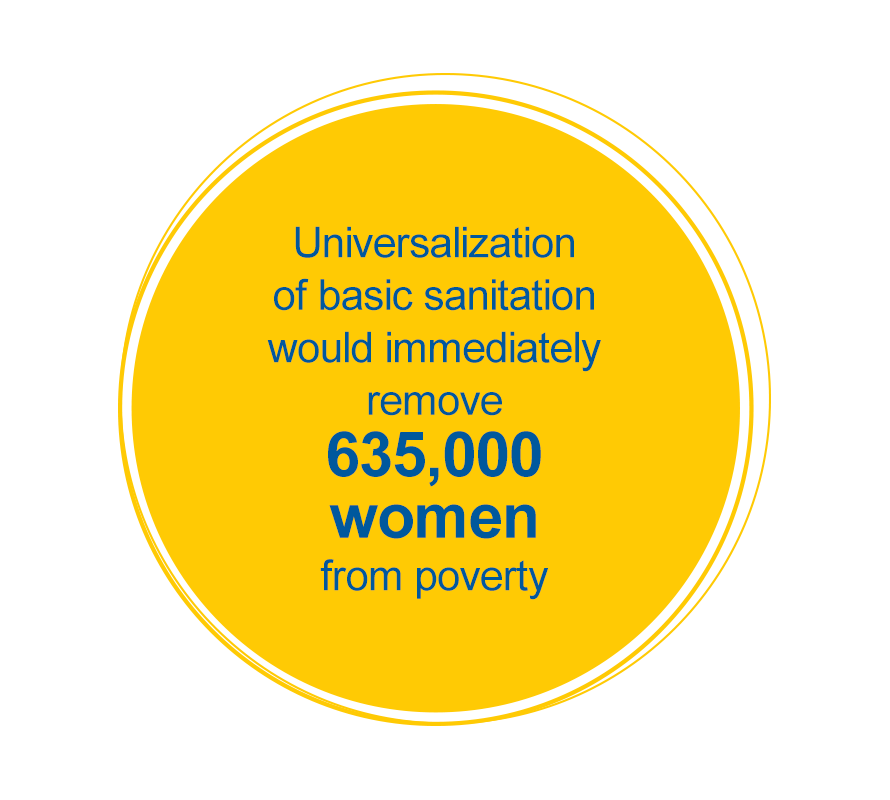
5
+ ENVIRONMENTAL
CONSERVATION
5+ ENVIRONMENTAL CONSERVATION

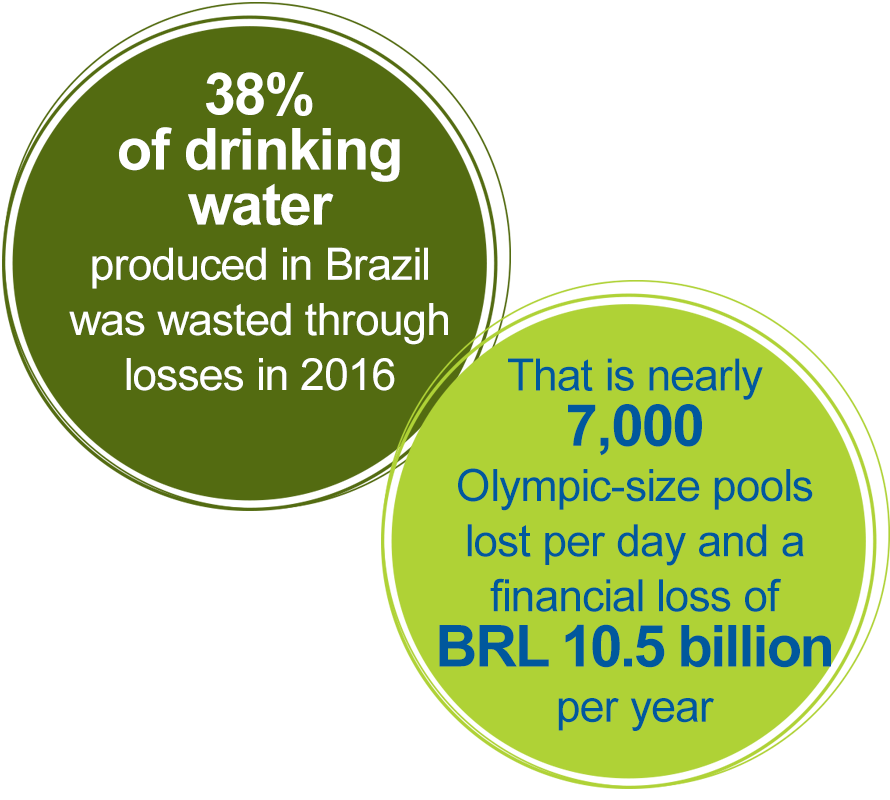
THE SANITATION DEFICIT IN BRAZIL
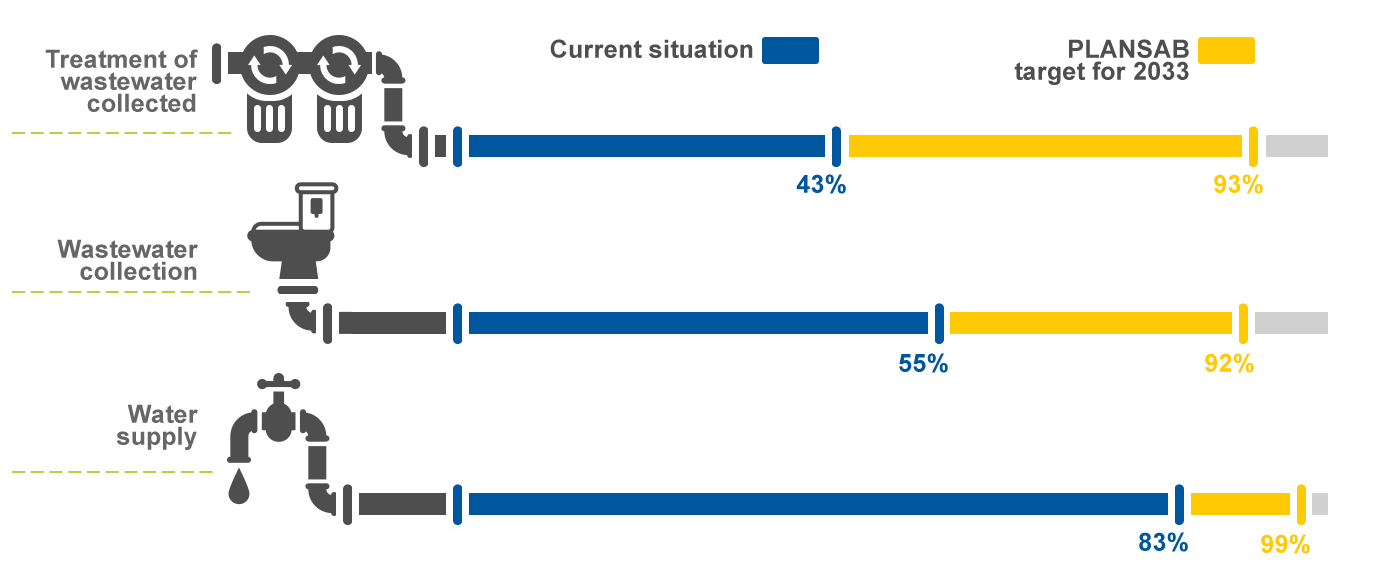
 Click here to understand how basic sanitation transforms people's lives
Click here to understand how basic sanitation transforms people's lives
How we operate
The quality of water supplied to our customers and the quality of effluents sent to water bodies, after undergoing treatment at unit stations, are constantly monitored and is a priority in operational management.
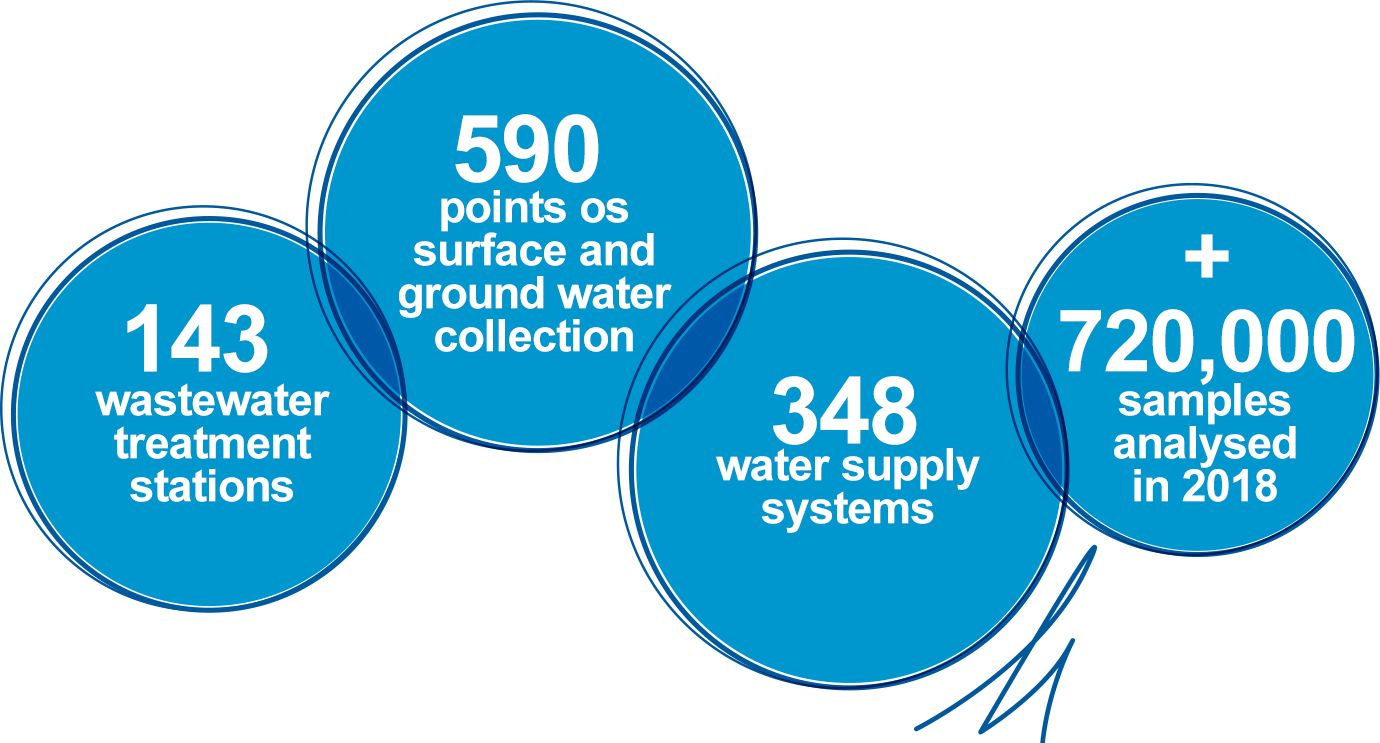
TOTAL WATER COLLECTION (MILLIONS OF M³)*
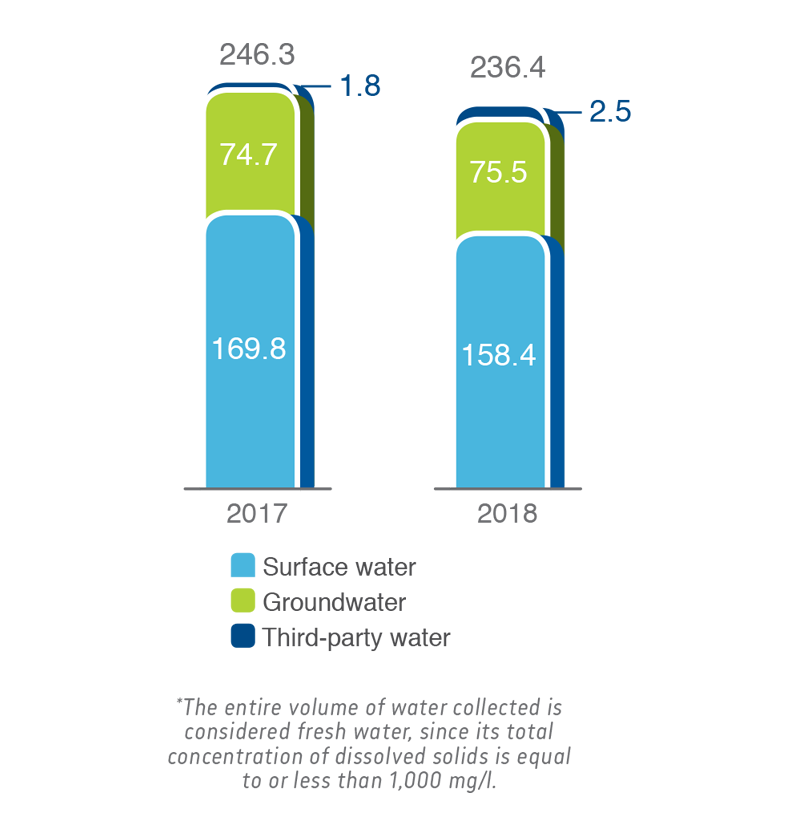
WATER QUALITY ANALYSIS*

EFFLUENTS DISCHARGED (MILLIONS OF M³)*
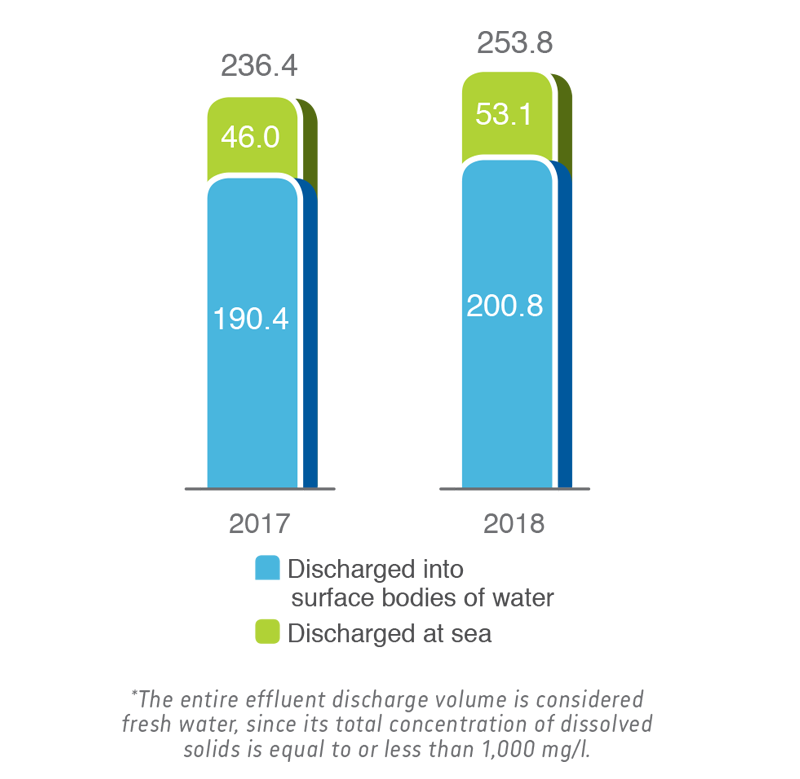
Commitment to
sustainability
The investments we make in socio-environmental projects are the final piece in making our purpose real, to transform people's lives by guaranteeing quality water and sanitation
 To find out more about how we work, visit the BRK Transforma website
To find out more about how we work, visit the BRK Transforma website
An unprecedented study entitled “Sanitation and the Life of the Brazilian Woman,” done by BRK Ambiental in partnership with Instituto Trata Brasil, with support from the Global Compact Network Brazil, shows that one out of every four women in Brazil have inadequate access to treated water and wastewater collection and treatment. This survey indicates that illnesses caused by a lack of sanitation impact the productive time of Brazilian women 10% more than Brazilian men.
Girls of school age without access to basic services score around 46 points lower compared to other students, and by the age of 14, girls suffer more from school absences due to diarrhea and other gastrointestinal ailments.


